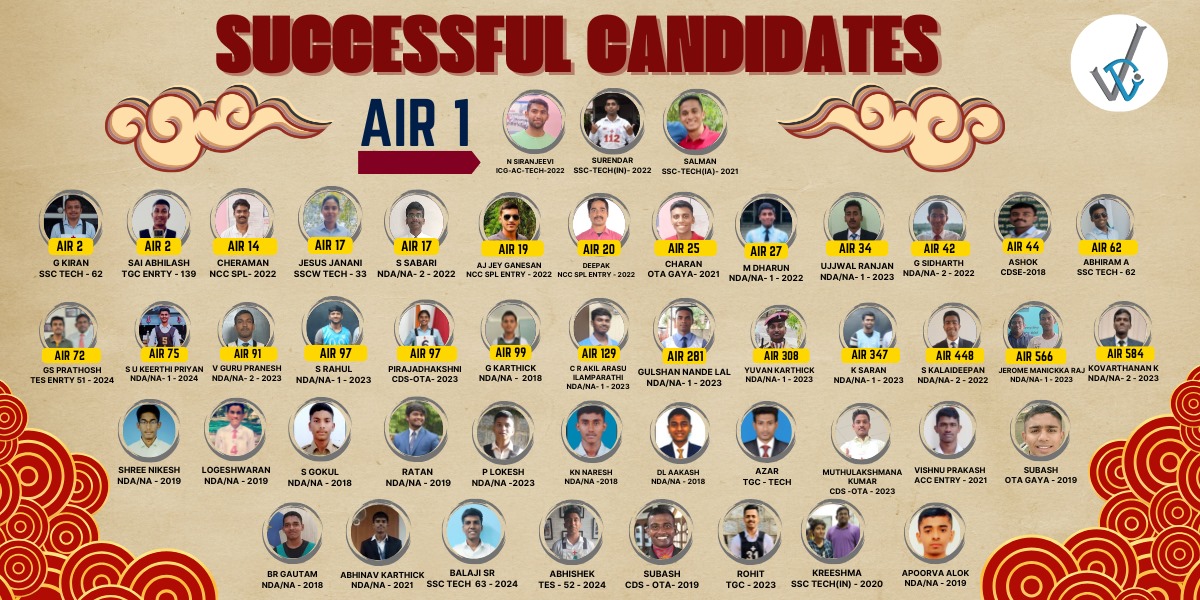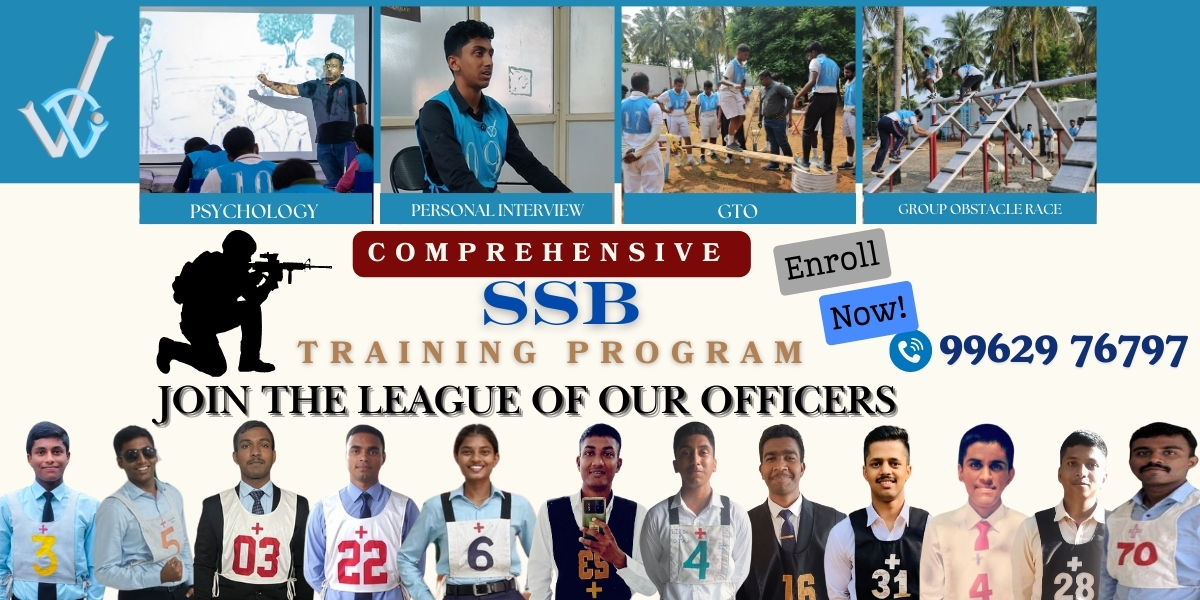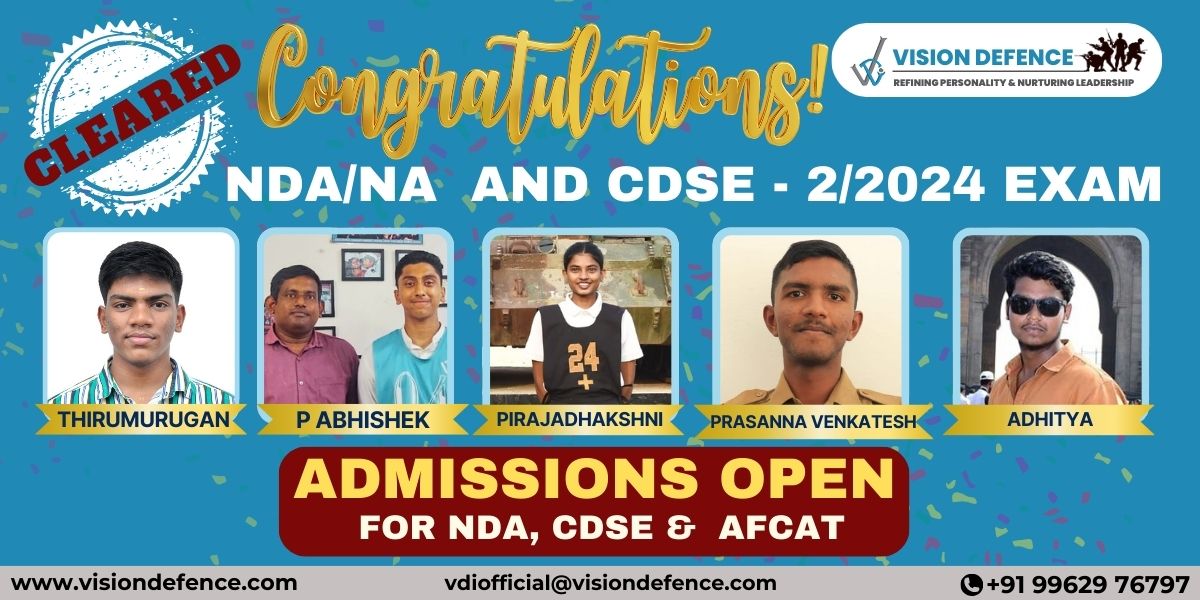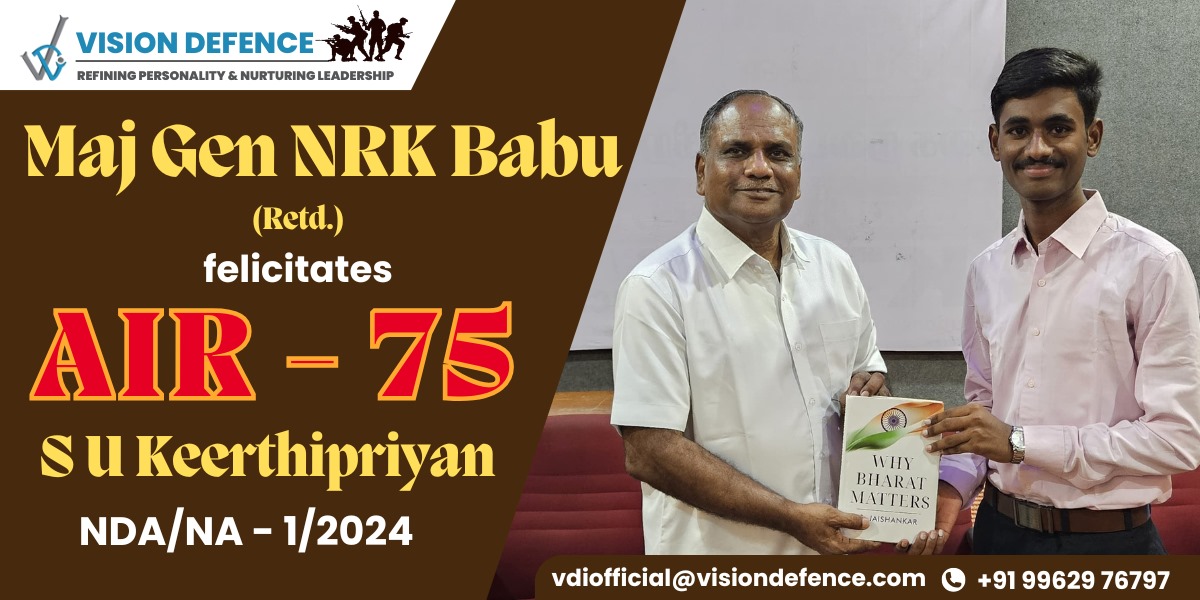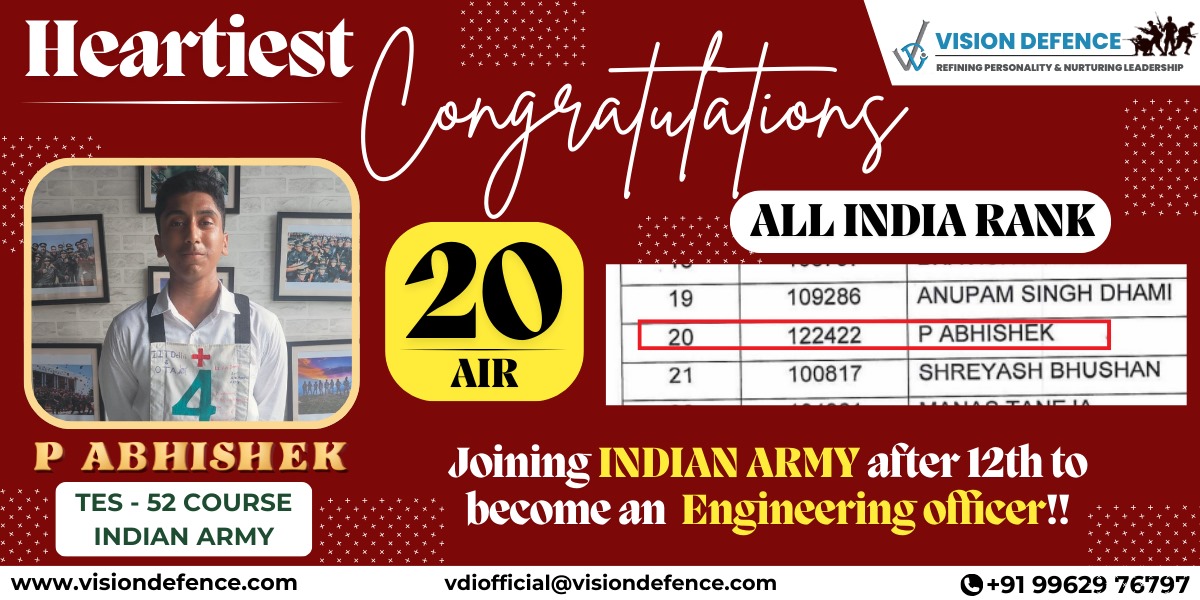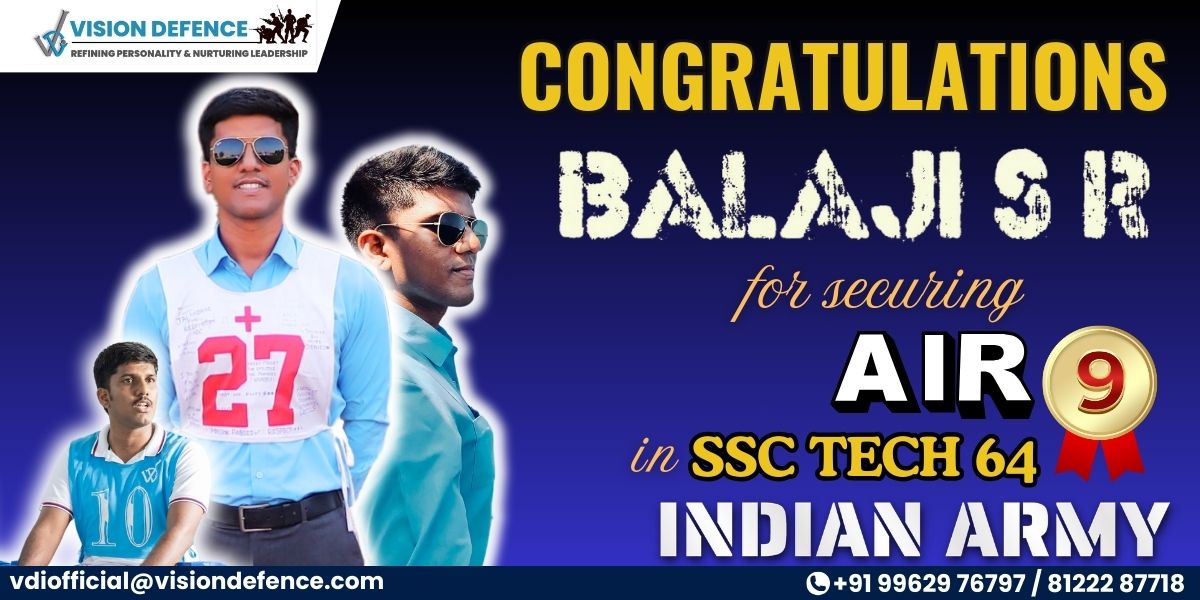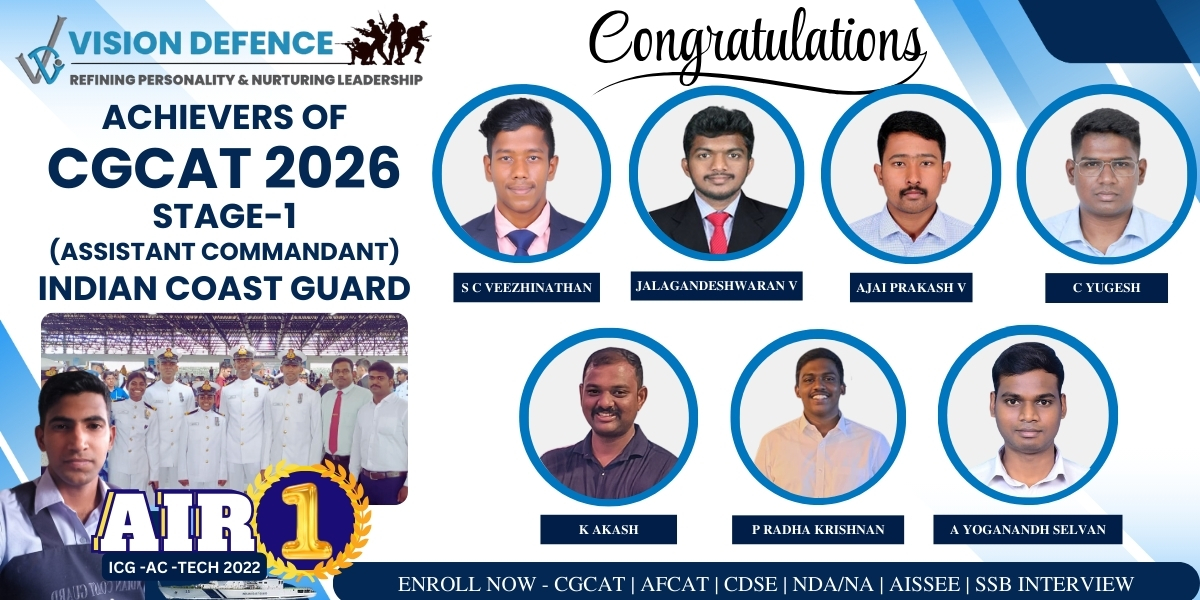Mastering the NDA/NA Exam: Your Path to Joining the Indian Armed Forces
Welcome to the ultimate guide to the National Defence Academy (NDA) and Naval
Academy (NA)
Examination, your passport to a rewarding career as an officer in the Indian
Armed Forces.
The NDA/NA exam, conducted by the Union Public Service Commission (UPSC) twice
a
year,
stands as a beacon of opportunity for young aspirants across the nation. In this
detailed
exploration, we’ll delve into every facet of the exam, from eligibility criteria
and exam
pattern to preparation strategies and key dates, equipping you with the
knowledge and tools
needed to embark on this transformative journey.
Eligibility Criteria:
- For Army wing of National Defence Academy: 12th class pass of the 10+2 pattern or school education or equivalent examination conducted by a state education board or a university
NDA/NA Exam Overview:
The NDA/NA exam serves as the gateway to prestigious careers in the Army, Navy, and Air Force wings of the National Defence Academy and the Indian Naval Academy. A rigorous selection process comprising a written examination and an extensive Services Selection Board (SSB) interview awaits candidates who dare to pursue their dreams of serving the nation.

| SUBJECT | DURATION | QUESTIONS | MAXIMUM MARKS |
|---|---|---|---|
| MATHEMATICS | 2.5 Hours | 120 | 300 |
| GENERAL ABILITY TEST | 2.5 Hours | 150 | 600 |
| TOTAL | 900 |
Note: Refer to the official website
NDA/NA (National Defence Academy/Naval Academy) exam syllabus
The NDA/NA (National Defence Academy/Naval Academy) exam syllabus is designed to test candidates’ knowledge and aptitude in various subjects. Here’s a comprehensive overview of the syllabus for both the written examination and the Services Selection Board (SSB) interview
Mathematics

| 1 | Algebra | Algebraic expressions, polynomials, quadratic equations, arithmetic, geometric, and harmonic progressions |
| 2 | Matrices and Determinants | Types of matrices, operations on matrices, determinants, and their properties. |
| 3 | Trigonometry | Trigonometric ratios, identities, heights and distances, properties of triangles, and their applications. |
| 4 | Analytical Geometry | Cartesian coordinates, straight lines, circles, conic sections, and applications. |
| 5 | Differential Calculus | Functions, limits, continuity, differentiation of functions, and applications of derivatives. |
| 6 | Integral Calculus and Differential Equations | Integration by substitution and by parts, definite and indefinite integrals, standard integrals, solutions of differential equations. |
| 7 | Vector Algebra | Scalars and vectors, vector operations, scalar and vector products, and their applications. |
| 8 | Statistics and Probability | Frequency distributions, mean, median, mode, variance, standard deviation, correlation, regression, probability, and distribution functions. |
Note: Refer to the official website
General Ability Test (GAT)

| Part A – English | |
| Grammar and Usage | Parts of speech, sentence structure, punctuation, synonyms, antonyms, and vocabulary. |
| Vocabulary | Idioms and phrases, one-word substitutions, comprehension passages, and synonyms/antonyms. |
Note: Refer to the official website

| Physics | Mechanics, heat, light, sound, electricity, magnetism, modern physics, and scientific inventions. |
| Chemistry | States of matter, atomic structure, chemical bonding, periodic table, and environmental chemistry. |
| General Science | Basic scientific concepts and principles applicable in everyday life. Topics may include biology, chemistry, physics, environmental science, and recent developments in science and technology. |
| History | Indian freedom struggle, world history, ancient, medieval, and modern Indian history. |
| Geography | Physical, social, and economic aspects of geography, climate, vegetation, and wildlife. |
| Polity | Constitution of India, Indian Government, Electoral System. |
| Economy | Indian Economy, Banking and Finance, Economic and Social Development. |
| Current Events | Events of national and international importance, including politics, economics, sports, science, technology, awards, and honors. Staying updated with recent developments through newspapers, magazines, and online sources is essential for performing well in this section. |
Vision Defence Institute’s Winning Preparation Strategy

Embarking on the journey to crack the NDA/NA (National Defence Academy/Naval Academy) exam demands a strategic approach and unwavering dedication. At Vision Defence Institute, we’re committed to guiding you through every step of this challenging yet rewarding process. Our comprehensive preparation strategy is designed to equip you with the knowledge, skills, and confidence needed to excel in the exam and realize your dream of serving in the Indian Armed Forces.
Understand the Exam Pattern and Syllabus
Before diving into preparation, familiarize yourself with the exam pattern and syllabus. Understand the structure of the written examination, which comprises Mathematics and General Ability Test (GAT) papers, as well as the Services Selection Board (SSB) interview. Take note of the topics covered in each section to tailor your study plan accordingly.
Build a Strong Foundation
Establish a strong foundation in all subjects covered in the exam syllabus. Dedicate sufficient time to mastering mathematical concepts, English language skills, and general knowledge topics such as history, geography, science, and current affairs. Utilize high-quality study materials provided by Vision Defence Institute, including textbooks, notes, and online resources, to enhance your understanding of key concepts.
Practice Regularly
Practice is key to success in the NDA/NA exam. Set aside time for regular practice sessions, solving previous year question papers, and taking mock tests to assess your progress and identify areas for improvement. Practice not only improves your speed and accuracy but also boosts your confidence and exam-taking skills.
Focus on Time Management
Effective time management is essential for success in the NDA/NA exam. Practice solving questions within the stipulated time limits to simulate exam conditions and improve your time management skills. Prioritize topics based on their weightage and your proficiency level to optimize your study time.
Stay Updated with Current Affairs
Stay abreast of current affairs, both national and international, by reading newspapers, magazines, and online news portals regularly. Pay special attention to defense-related news, government policies, and global developments that may be relevant to the exam. Vision Defence Institute provides curated current affairs materials to keep you informed and prepared.
Seek Guidance and Support
Take advantage of the guidance and support offered by Vision Defence Institute’s experienced faculty members. Attend regular doubt-solving sessions, participate in interactive classes, and seek clarification on difficult topics. Engage in group discussions and peer learning to gain insights and perspectives from fellow aspirants.

Prepare for the SSB Interview
In addition to the written examination, prepare thoroughly for the SSB interview, which assesses your personality, leadership qualities, and suitability for a career in the Armed Forces. Practice communication skills, group discussions, and situational judgment exercises to ace the interview round.
Cracking the NDA/NA exam requires a disciplined approach, meticulous preparation, and unwavering determination. With Vision Defence Institute’s comprehensive preparation strategy and your dedication, you’re well-equipped to conquer this milestone and embark on a fulfilling career in the Indian Armed Forces. Stay focused, stay motivated, and let your aspirations soar high. Success awaits!

Training Batches
- REGULAR BATCH
- LONG TERM BATCH
- INTENSIVE TRAINING PROGRAM (CRASH COURSE)
